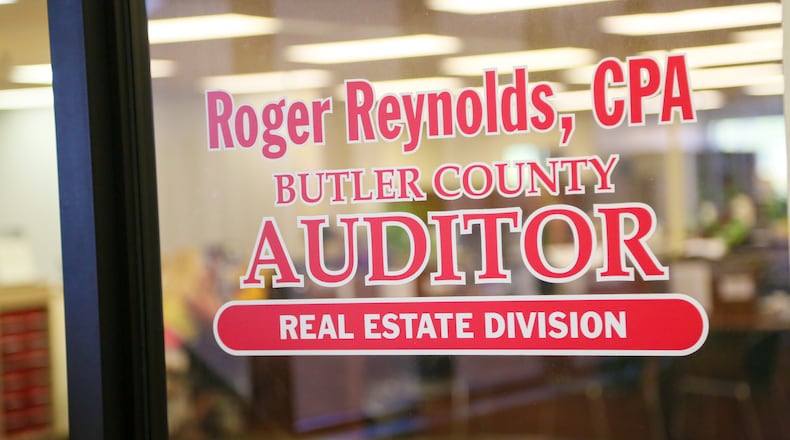There were multiple tax levies on the 2020 primary and general election ballots, most of which won’t increase taxes. Hamilton and St. Clair and West Chester townships all had new levies approved by voters, so there will be increases in those jurisdictions.
Hamilton voters approved a new 3.9-mill road levy that will cost roughly $136 for a $100,000 home. St. Clair Twp. won an additional 3.5-mill continuing operating levy that will cost $103 a year for the owner of an average home there. West Chester Twp. voters approved two new 2-mill levies for police and fire. The owner of a $200,000 home will pay a little less than the estimate of $336.
Taxes won’t increase as a result of renewal levies for Butler County mental health and elderly services; Lemon, Milford and Morgan townships and the MidPointe Library system. Edgewood Schools voters approved a substitute levy officials said would decrease taxes.
County Auditor Roger Reynolds was required by law to reassess all properties countywide last year. The average value increase is 14.5%, but increases vary by neighborhood according to recent sales data. The state ordered an average 20% increase, and Reynolds is battling that much of an increase on appeal.
Unvoted taxes are also allowed to be collected up to a certain level, by Ohio law. That level is 10 mills for governmental bodies and 20 mills for schools.
There are three school districts that were already above the 20-mill floor before the reassessment, so families in the Fairfield, Lakota and New Miami districts will see smaller increases on school taxes. Taxes may increase to a greater degree in the other districts, depending on their individual reassessment.
The Hamilton and Ross school districts were at the 20-mill threshold, so they made adjustments, moving inside millage from their general funds to permanent improvements, to take advantage of the value increase.
“Those two school districts basically adjusted their 20-mill floor so that they could increase taxes,” Reynolds said. “There are other districts who were below the 20-mill floor that didn’t need to tinker with their 20-mill floor, they were already under so those are going to go up also.”
Residents in Hamilton and West Chester Twp. will see the largest impact because of the new levies. A few Hamilton residents told the Journal-News their bills went up more than $800.
Butler County Treasurer Nancy Nix, who bills and collects but does not assess taxes, billed taxpayers $521.8 million in 2020 and will bill $565.7 million this year in two installments, a 8.4% increase ($43.8 million).
Property in all counties is reappraised every six years, and property values are updated every third year. Butler County was among 13 Ohio counties required to reappraise last year.
The state tax commissioner can approve delay requests for up to one year on six-year reappraisals. Reynolds requested a delay so he could better gauge the impact of the pandemic. State Tax Commissioner Jeffrey McClain denied the request.
“Extensions of time to complete reappraisals have historically been limited to instances in which it was impossible for counties to complete the sexennial reappraisal in the reappraisal year,” McClain wrote to Reynolds. “In no circumstances has the extension operated to change the reappraisal year. Here the auditor has noted in his request that the reappraisal work is nearing completion. In light of this, there is no cause shown to grant an extension.”
Lemon Twp. saw the largest value hike by far at 32.1% and Middletown went up around 25%. Reynolds faced a similar dilemma during the Great Recession. He was forced to reappraise properties in 2008. He was able to go back in 2009 and adjust the numbers to more realistic levels. Middletown was one of the hardest areas and he readjusted accordingly.
“Middletown values went up a decent amount this time around,” Reynolds said. “Middletown over the last 12 years saw when the Great Recession hit, we reduced Middletown’s property values more than any other in the county because they saw the hardest impact from the downturn in the economy. Over time we’ve continued to increase those Middletown values up to current market.”
Residents can contest their tax bills through the Butler County Board of Revisions until March 31 and the application link can be found here: www.butlercountytreasurer.org. Residents have been able to see their tax bills on Nix’s website and as of Thursday Chief Deputy Auditor Dawn Mills said they have had 11 applications to challenge their bills.
About the Author

